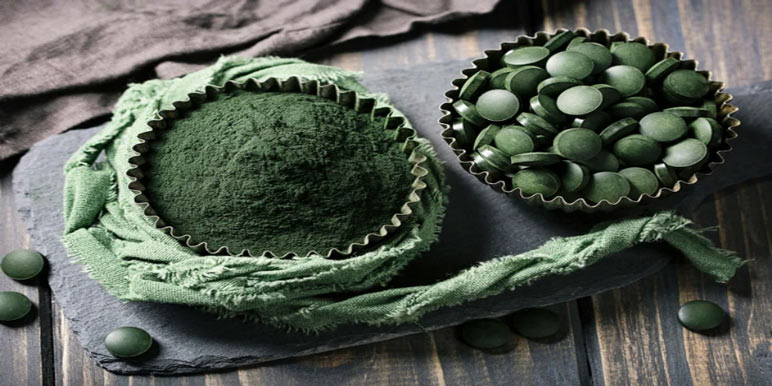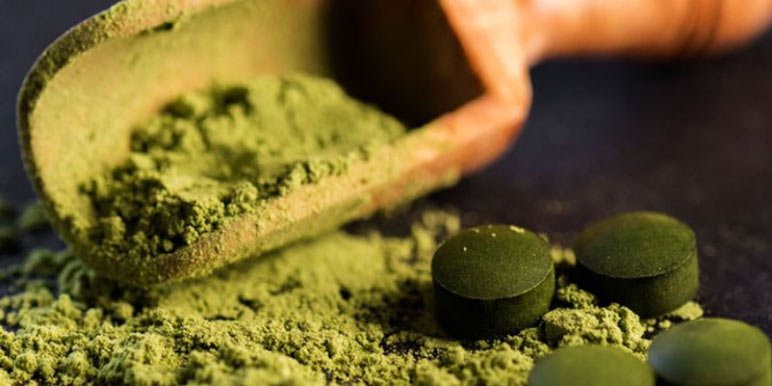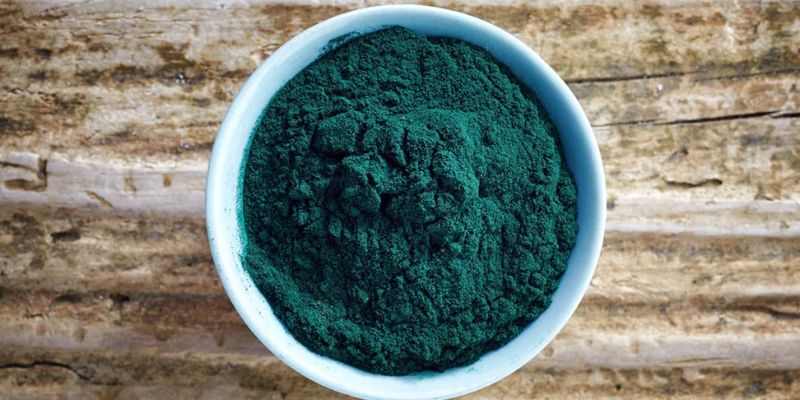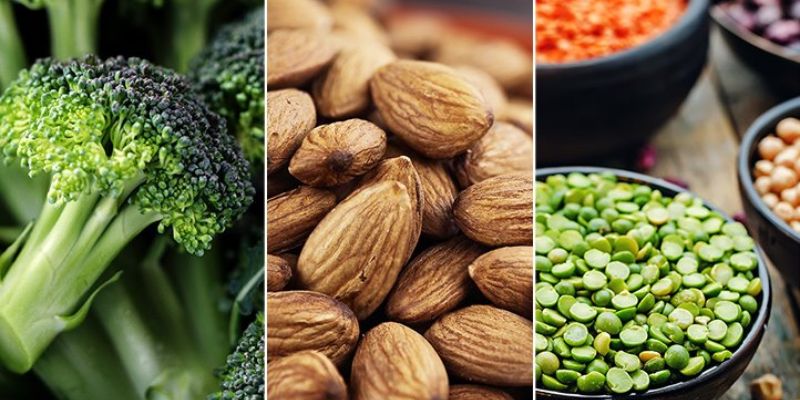Spirulina - the "superfood" you've heard so much about - is an algae-based supplement with various health benefits.
From reducing blood pressure to boosting energy levels, Spirulina packs a real nutritional punch, making it one of the most sought-after dietary supplements on the market today.
But what exactly makes Spirulina special? And why should you consider adding this powerful superfood to your diet? In this blog post, we'll give you all the details!
An Overview of Spirulina
Spirulina is a type of blue-green algae that can be found in both freshwater and saltwater sources. It's also classified as a Cyanobacteria, which means it can produce its food from photosynthesis.
This makes Spirulina a great source of protein and other essential nutrients, including vitamins, minerals, antioxidants, omega-3 fatty acids, and more.
Its nutritional value has been known for centuries; the Aztecs harvested Spirulina from Lake Texcoco to make cakes and use it as an energy booster. Today, modern science has helped uncover even more of its potential health benefits.
Uses of Spirulina

1. Improving Blood Pressure
Spirulina is well known for its ability to help reduce high blood pressure levels, thanks to its high concentrations of minerals, vitamins, and amino acids.
Studies show that taking Spirulina daily can significantly reduce systolic and diastolic blood pressure levels.
2. Boost Energy Levels
The combination of protein, carbohydrates, and healthy fats found in Spirulina helps give your body a sustained energy boost throughout the day.
It's also full of antioxidants that help protect against oxidative stress—the damage that can lead to fatigue and a weakened immune system.
3. Enhancing Brain Function
Spirulina contains essential fatty acids like omega-3s, which improve brain function and cognitive performance. Studies have also shown that taking Spirulina can increase concentration, reaction time, and cognitive flexibility.
4. Strengthening the Immune System
Spirulina's high Vitamin C and zinc levels boost immunity, making it more resistant to illnesses and infections. Regular consumption can also help reduce inflammation linked to many chronic diseases.
5. Supporting Weight Loss
The combination of protein and fiber found in Spirulina are key components for successful weight loss programs as they help you feel fuller and longer, reducing cravings throughout the day.
It also helps burn fat by increasing metabolism while reducing cholesterol levels at the same time.
6. Antioxidant Capacity
Spirulina is also packed with antioxidants like polyphenols and carotenoids. These powerful compounds can help prevent cell oxidative damage, reducing the risk of many chronic illnesses.
Studies have also shown that Spirulina can help reduce inflammation throughout the body, making it an excellent choice for overall health and well-being.
Who shouldn’t take spirulina?

Although Spirulina is generally considered safe for most people, it's important to note that individuals with specific medical conditions like autoimmune diseases or allergies should speak to their doctor before taking it.
Additionally, pregnant women and children under 12 should avoid consuming Spirulina.
How to Incorporate Spirulina into Your Diet
Adding Spirulina to your daily diet is an easy way to get the health benefits of this superfood. There are several ways you can do so, including:
-Taking it as a supplement. Spirulina supplements come in powder, tablet, and capsule forms, so you can choose which best suits your needs. You can take it by itself or mix it into drinks and smoothies for a nutritional boost.
-Eating Spirulina-based foods. Many manufacturers now make products like pasta, chips, and energy bars that feature Spirulina as an ingredient. These items give you all the algae's nutritional advantages without a supplement.
-Making recipes at home. If you're feeling adventurous, you can make your recipes using Spirulina. Many easy-to-follow dishes feature this superfood, like smoothies and pesto pasta sauces.
No matter how you incorporate Spirulina into your diet, it's important to know how much to take to get the most out of the supplement.
The recommended daily dose is typically 3-4 grams for adults and 1-2 grams for children.
Be sure to consult with a healthcare professional before taking any dietary supplement, as there may be side effects or contraindications depending on individual health history and medications currently taken.
How is spirulina made?
Spirulina is made in an industrial process that starts with cultivating the algae in a controlled environment. This typically involves growing it in large tanks or ponds filled with water and nutrient solutions.
The environment must be monitored closely to ensure optimal temperatures, light exposure, and oxygen levels for the algae to grow.
Once it reaches maturity, the Spirulina is harvested, dried, and milled into powder or tablet forms.
Potential Side Effects of Consuming Spirulina
Spirulina is a very safe and well-tolerated supplement. However, it is important to note that some potential side effects are associated with consuming Spirulina. Here are some of the most common:
1. Gastrointestinal Upset: Some people have reported experiencing gastrointestinal upset after taking Spirulina, such as nausea or indigestion. People sensitive to certain foods may have similar reactions when taking Spirulina supplements.
2. Allergic Reactions: People allergic to seafood may experience an allergy-like reaction when taking Spirulina because of its marine origin. If you suspect you may have an allergy, it's best to consult with your doctor before taking Spirulina supplements.
3. Increased Risk of Bleeding: People taking blood thinners or with a history of bleeding disorders should be extra cautious when supplementing with Spirulina as it has been known to increase the risk of bleeding in some individuals.
4. Drug Interactions: Some medications may interact with Spirulina, so it's important to check with your doctor before supplementing if you're taking any prescription drugs.
Important Facts and Figures about Spirulina
In addition to its potential side effects, there are a few important facts and figures that you should know about Spirulina.
Here is a quick overview:
1. Nutritional Content: One tablespoon of dried Spirulina contains 4 grams of protein, 1 gram of fat, and 2 grams of carbohydrates. It also provides essential vitamins and minerals such as iron, calcium, magnesium, potassium, and zinc.
2. Recommended Dosage: According to research studies, the recommended dosage for adults is 5-10 grams daily. However, it's important to note that this amount may vary depending on individual needs and health goals.
3. Availability: Most health food stores carry Spirulina in both powder and tablet form, and it's also readily available online.
By understanding the potential side effects and important facts and figures about Spirulina, you can make an informed decision as to whether or not this superfood is right for you!
FAQs
What is spirulina good for?
Spirulina is a powerful superfood that can help reduce blood pressure, boost energy levels, and provide essential nutrients. It's an ideal supplement for improving overall health and wellness.
Where does spirulina come from?
Spirulina is a blue-green algae growing in warm, alkaline waters. Humans have consumed it for centuries as an important source of protein and nutrients.
Is spirulina safe to take daily?
Yes, spirulina is generally safe to take daily. However, it's always best to consult your doctor before taking any new supplement or making drastic dietary changes.
Conclusion
Spirulina is a powerful superfood that offers an array of health benefits. From reducing blood pressure to increasing energy levels, there are plenty of reasons why you should consider including it in your diet. With its extensive nutritional profile and great taste, adding Spirulina to your meals is an easy way to boost your well-being! Try it and see how this amazing algae can positively impact your life. It's time to join the superfood revolution – start adding Spirulina today!



